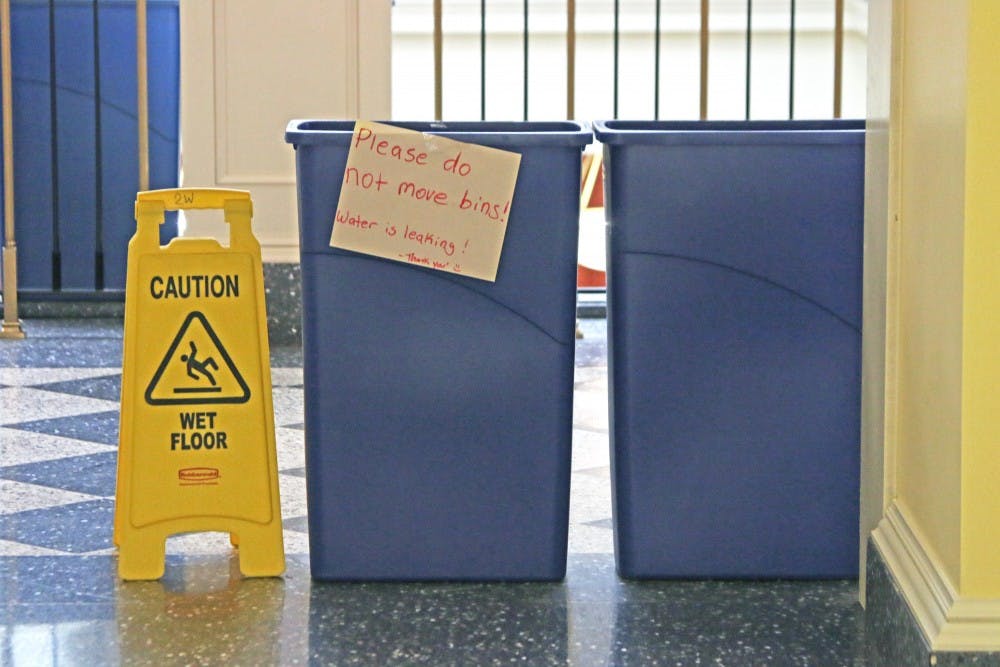The ceiling is leaking on the second floor of the Farmer School of Business (FSB), and two recycling bins have been placed under it, blocking half of the hallway. The leak has been dripping for a few weeks already, and it's starting to bother the business students.
"It's an issue to students and professors alike," said Emily Rose, a first-year finance major. "Overall, for students, it can be an eyesore."
The location of the bins and the leak has also brought about safety and damage concerns within the building, said Steve Feck, senior training manager for Miami University Physical Facilities.
"I would assume, knowing Miami and how much effort that they put into the aesthetic of their buildings, that they would deal with the situation promptly," Rose said.
Feck and the physical facilities department say the leak can't be fixed until things dry up later in the spring.
Though business students may be concerned about the leak, students outside FSB are less miffed.
"Personally, I think Farmer is a palace, and it has one small leak in it that's not affecting anything," said first-year architecture major Natalie Hopkins. "It's being caught in a trashcan, so it's kind of fine."
Hopkins has first-hand experience with many leaks in Alumni Hall, where she spends much of her time in classes or studying.
"Alumni has a lot of leaks, and it's an actual issue to our learning because it leaks right onto our desks where people have their projects," Hopkins said.
Sometimes, the water will drop onto more dangerous territory than architecture-class masterpieces.
"There was a leak in the [architecture] library leaking right next to a power strip the other day," Hopkins said, "So I put a jar underneath it."
Feck said they are working to manage the situation in FSB.
Enjoy what you're reading?
Signup for our newsletter
"We do our best to maintain a comfortable space that is conducive to the learning environment," Feck said. "Farmer generally would be treated with a high priority."
Feck said that the current bin set-up in Farmer is following normal "first-response protocol" for this type of leak, with the immediate priority of preventing further damage.
The leak was caused by an excessive amount of snow and ice this season, and Feck said it will require a more extensive repair. This will prolong the time required to fix the issue. Miami's maintenance and trade shops are currently working out solutions with contractors, but they cannot fix the leak until it dries out in the spring.




